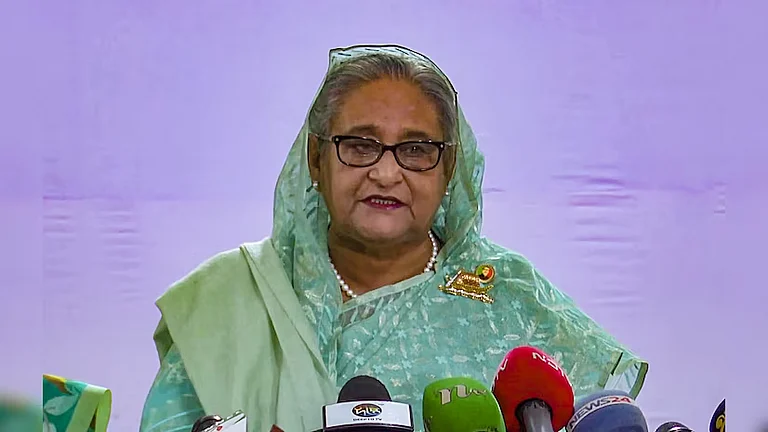Banks, markets and factories in Bangladesh have reopened a week after deadly violence shook the country. As the student protests taper off, the curfew has also been relaxed by the Sheikh Hasina government.
Last week, as per AFP, the deadly clashes in the country killed a total of 186 people - some students and some police officials. The quota protests of last week have been noted as one of the worst unrests during Prime Minister Sheikh Hasina's tenure.
Despite the relaxation in curfew, Bangladesh continues to remain without internet. After the student protests turned violent, internet and mobile services were suspended across the nation as the government imposed a shutdown.
However, as the protests taper off, calm seems to return to the streets of Dhaka with banks, markets and factories re-opening.
As calm returns to Bangladesh, Prime Minister Sheikh Hasina has blamed the opposition parties such as - the Bangladesh Nationalist Party and the Jammat-e-Islami - for the violence caused in the protests last week.
Addressing the nation post the deadly clashes, the PM expressed that she "never wanted to impose a curfew" and added that a curfew will remain in place until the situation the country does not improve.
Thousands of students took to the streets to protest against the unfair quota system for reservations in Bangladeshi government jobs. The students, in particular, raised their voices against the "war hereos" quota which guaranteed 30 percent reservation for grandchildren of war vetrans who fought in the 1971 war.
Following the deadly protests, the Supreme Court ordered a scale back of the quota system and reduced the reservation form 30 percent to five percent, paving the way for 93 percent of recruitment to be based on merit.








.jpg?auto=format%2Ccompress&fit=max&format=webp&w=768&dpr=1.0)

















